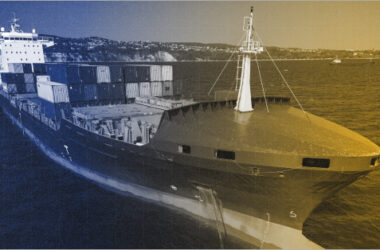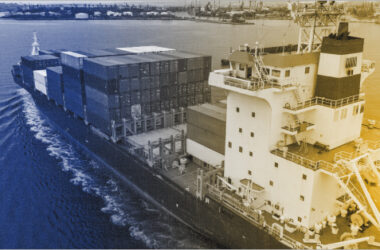Marine Insurance is an essential aspect of the shipping industry, providing protection to ship owners and cargo owners from a variety of risks. One of the key components of Marine Insurance is the concept of conditions and warranties. These are parts of the terms and provisions included in Marine Insurance Policies and they outline the rights and obligations of the parties involved.
The interpretation and application of conditions and warranties in Marine Insurance can be complex, and there are many legal cases that have helped to shape the understanding of these concepts. It is important for ship owners and cargo owners to have a clear understanding of the conditions and warranties in their insurance policies in order to ensure that they are adequately protected in the event of a loss.
Conditions in Marine Insurance
In essence, Marine Insurance Policies are contracts between the insurer and the insured that contain various terms and conditions. Conditions are provisions that must be fulfilled by the insured in order for the policy to remain in force. Failure to comply with a condition may result in the insurer refusing to pay out on a claim. The conditions can be either express or implied.
A. Implied Conditions
Implied conditions are those that are not explicitly stated in the policy but are automatically included by law. These conditions are deemed to be present in every Marine Insurance Policy, and they include:
- Seaworthiness: The vessel insured must be seaworthy, meaning that it must be in a condition to withstand the perils of the sea. If the vessel is not seaworthy, the insurer may refuse to pay out in the event of a claim.
- Legality: The insured must not engage in any illegal activities while using the vessel. If the insured breaches this condition, the insurer may refuse to pay out in the event of a claim.
- Good faith: The insured must act in good faith when taking out the policy and when making a claim. If the insured acts fraudulently, the insurer may refuse to pay out.
B. Express Conditions
Express conditions are those that are specifically stated in the policy. These conditions can vary depending on the policy, but they may include:
- Notification requirements: The insured must notify the insurer of any incidents that may lead to a claim, such as damage to the vessel or loss of cargo.
- Maintenance requirements: The insured must maintain the vessel in a certain condition, such as by carrying out regular inspections and repairs.
- Navigation limits: The insured must adhere to certain navigation limits, such as not venturing into certain dangerous routes.
It is important for the insured to understand and comply with all of the conditions in their Marine Insurance Policy. Failure to do so may result in the insurer refusing to pay out in the event of a claim.
Warranties in Marine Insurance
Warranties are statements of fact that are guaranteed by the insured. In other words, these warranties are promises made by the insured to the insurer regarding the condition or use of the insured vessel. If the warranty is breached, the insurer may be discharged from liability. Marine Insurance Policies contain warranties that are either implied or express.
A. Implied Warranties
In Marine Insurance, implied warranties are certain fundamental and automatic promises that are considered to be inherent in the nature of the contract. These warranties are not explicitly stated in the insurance policy but are automatically understood to exist as a part of the agreement between the insured (the shipowner or cargo owner) and the insurer. In the context of Marine Insurance in India, some common implied warranties include:
- Seaworthiness of the Vessel: The vessel must be seaworthy at the commencement of the voyage. This implies that the ship is fit for the intended journey, properly equipped, and manned by a competent crew.
- Legality of the Voyage: The insured implicitly warrants that the voyage is legal. This means that the insured will not engage in any unlawful activities during the course of the journey.
- No Concealment or Misrepresentation: The insured implicitly promises not to conceal any material information or misrepresent any facts that could affect the risk. Full disclosure of relevant information is expected.
· Warranty of Good Faith: This is an implied warranty that both the insurer and the insured will operate in good faith throughout the insurance arrangement. This includes submitting accurate information right through the underwriting process as well as committing to the policy’s terms.
· Warranty of Insurable Interest: The insured is often assumed to have an insurable interest in the subject matter of the insurance. In Marine Insurance, this indicates that if the insured subject is damaged or lost, the insured will incur a financial loss.
B. Express Warranties
Express warranties in Marine Insurance are specific and explicit promises or undertakings that are clearly stated in the insurance policy. Unlike implied warranties, which are automatically assumed to exist as a part of the nature of the contract, express warranties are consciously written into the policy and agreed upon by both the insured (shipowner or cargo owner) and the insurer. These warranties are essentially conditions precedent, meaning they must be strictly complied with for the insurance coverage to be valid.
In the context of Marine Insurance in India, some common examples of express warranties include:
· Voyage Warranties: Specifications regarding the route or voyage the insured vessel is permitted to undertake. Deviating from the agreed-upon route may result in a breach of warranty.
· Cargo Description Warranties: Details about the nature and description of the cargo being insured. Any deviation from the provided cargo description could lead to a breach of warranty.
· Compliance with Regulations Warranties: Assurances that the insured will comply with relevant laws, regulations, and safety standards during the course of the insured voyage.
· Usage and Purpose: These warranties may describe the reason for the vessel’s insurance as well as its intended use. Any deviation from the stated purpose without prior approval could result in a warranty breach.
· Qualifications of the Crew: Some policies may incorporate warranties regarding the crew’s qualifications and competency. It is critical to ensure that the staff meets certain levels of training and expertise in order to fulfil this warranty.
· Notification Warranties: These warranties call for the insured to notify the insurer of specific occurrences or changes within a certain timeframe. For example, the insured may be expected to promptly notify any changes in the vessel’s conditions or changes to the anticipated voyage.
Why are Conditions and Warranties in Marine Insurance Important?
Conditions and warranties play a crucial role in in Marine Insurance in defining the rights and obligations of both the insured and the insurer. These contractual elements are particularly important in the Indian context due to the unique challenges and risks associated with maritime trade and transportation. Here’s why conditions and warranties are significant in the realm of Marine Insurance in India:
· Risk Mitigation: Conditions are the fundamental terms that both parties agree to adhere to. For example, conditions may outline the insured’s obligation to maintain the seaworthiness of the vessel or the necessity to notify the insurer promptly in the event of a loss. Adhering to these conditions helps mitigate risks and ensures a safer maritime environment.
Similarly, express warranties, explicitly stated in the policy, provide a clear understanding of the expectations and obligations of the insured. This clarity is crucial for risk mitigation, as any breach of a warranty may lead to a denial of coverage. For instance, warranties may specify the permitted route or the condition of the vessel.
· Legal Framework: Conditions and warranties create a legal framework for the Marine Insurance contract. They establish the terms upon which the insurer agrees to provide coverage and the insured agrees to fulfil certain obligations. This legal clarity is essential in the event of a dispute or a claim.
· Utmost Good Faith: Marine Insurance is based on the principle of utmost good faith. Both parties are expected to act honestly and transparently. Conditions and warranties ensure that the insured provides accurate information and complies with agreed-upon terms, fostering trust and fair dealing in the insurance relationship.
· Compliance with Regulations: Conditions and warranties may include obligations related to compliance with national and international regulations governing maritime activities. This is particularly important in the Indian context, where adherence to maritime laws and safety standards is crucial for the protection of lives, property, and the marine environment.
· Claim Settlement: Adherence to conditions and warranties is vital during the claims settlement process. Failure to fulfill these contractual obligations could lead to disputes or denial of claims. Clear and unambiguous conditions and warranties help streamline the claims process and provide a basis for determining coverage.
Conclusion:
We can conclude by saying that conditions and warranties in Marine Insurance are essential components that set the framework for a transparent and mutually beneficial contractual relationship between the insured and the insurer. They serve as risk management tools, legal guidelines, and mechanisms for ensuring compliance with industry standards and regulations, making them pivotal in the context of Marine Insurance in India.
Frequently Asked Questions (FAQs)
- What are the primary differences between conditions and warranties in a Marine Insurance Policy?
Conditions and warranties are both terms used in Marine Insurance Policies to define the coverage and obligations of the insurer and the insured. The primary difference between conditions and warranties is that conditions are essential terms of the policy, while warranties are not. A breach of a condition will result in the policy being void, while a breach of a warranty will only discharge the insurer from liability for losses resulting from the breach.
2. How does an express warranty differ from an implied warranty within the context of Marine Insurance?
An express warranty is a written guarantee provided by the insured to the insurer, while an implied warranty is an unwritten guarantee that is understood to be included in the policy. Express warranties are specific and clearly defined, while implied warranties are more general and may be inferred from the nature of the insurance contract. Breaching an express warranty will result in the policy being void, while breaching an implied warranty will only discharge the insurer from liability for losses resulting from the breach.
3. What is the significance of a warranty of neutrality in Marine Insurance?
A warranty of neutrality is a guarantee provided by the insured that the vessel insured will not engage in any activities that could be considered hostile to any nation or power. This warranty is significant because it ensures that the insurer will not be liable for any losses resulting from acts of war or piracy. Breaching a warranty of neutrality will result in the policy being void.
4. In what ways do warranties in Marine Insurance affect the validity of the policy in India?
In India, warranties in Marine Insurance are considered to be conditions of the policy. This means that breaching a warranty will result in the policy being void, regardless of whether the breach caused the loss. However, if the insurer chooses to waive the breach of warranty, the policy will remain valid.








